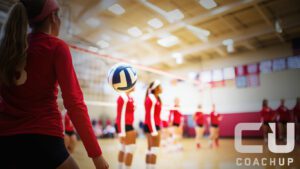The Importance of Nutrition in Athletic Performance
Increased research into athletic performance has shown that there are countless factors that contribute to how an athlete is able to perform while competing in their sport. For example, compared to 50 years ago, there is much more of an emphasis placed on the strength and conditioning of an athlete for all sports. Another equally important factor is the mental health of an athlete.
How relaxed or stressed an athlete feels on any given day can greatly affect whether or not they can perform to the best of their ability. I’ve chosen to focus in on a piece of the puzzle that’s often neglected by athletes (either as a result of ignorance as well as by choice): the crucial component of nutrition.
Although I may not be a nutritionist, I have been around enough trainers and coaches who have a vested interest in the nutritional habits of athletes to be able give some general advice for athletes out there in the hopes of educating them on the importance of this often forgotten element that has a profound effect on performance. The most important thing to understand is that what you put into your body does affect your performance. I know people, and I’m sure you do too, who say things like “I can eat whatever I want before a game, and I feel fine!”. Although those people may “feel” fine, they’re really not doing themselves justice by putting the wrong foods into their body pregame. Okay, you may feel fine, but imagine how much better you’d feel, and how much better you’d perform if you ate healthily before a game?
And it’s not just what you’re eating pregame. Good nutritional habits are an everyday thing, not something just to be paid attention to on game day. A good way to think about nutrition is to consider the food that you eat as fuel, because well, that’s essentially what it is. Your body breaks it down in order to extract the nutrients needed to provide the energy you need to run up and down the court, field, or track during practices and games. So when you eat unhealthy foods, loaded with fats or sugars, then it’s like you’re putting regular fuel in a diesel car. Although that example may seem a bit extreme, as putting regular fuel in a diesel car really messes the engine up, it’s really not that far off, because putting the wrong fuel in your body on a consistent basis can really mess up your athletic performance. Or at the very least not allow you to perform as well as you could if you ate healthily.
So now that we have the right mindset about our food, let us turn to when we should be eating. Don’t feel confined to have to stick to the traditional three meals a day of simply breakfast, lunch and dinner. In fact, don’t stick to that. Because it’s wrong. As an athlete (and even if you’re not an athlete) you need to be eating more frequently throughout the day. Shoot for five smaller to medium balanced meals throughout the day. Have breakfast, a mid-morning snack, lunch, a mid afternoon snack, and dinner (and depending on when you’re going to bed, maybe even an after dinner later night snack). This will help to keep you fueled up throughout the day and prevent you from feeling like you have to stuff yourself at just three meals a day so you won’t feel hungry in the in between hours.
On workout days, make sure you’re taking care to eat properly before and after workouts. You really should eat something half an hour to 45 minutes before you workout and then something within a half an hour window after you workout (the sooner the better). That doesn’t mean have a Snickers and some skittles before you workout, and then a can of soda and some Pop Tarts after you workout. Eat the right things pre and post workout or game. A piece of fruit and a peanut butter sandwich before and some source of protein after (whether it be your favorite protein shake or a lean meat like grilled chicken-not fried). Now besides those few examples of pre and post workout food, I’m not going to list off all the specific things you should be eating, because different things work well (and taste good) for different people. But in general, shoot for the recommended five servings of fruits and vegetables per day (this can’t be overlooked-make sure to get your fruits and veggies in!), as well as balancing your plates at every meal with whole grains, protein, and fruits/vegetables (yes I’m saying it again, so you won’t forget).
Remember, although French fries are made from potatoes, they do NOT count as a vegetable.
When picking fruits and vegetables, and in general with your food, keep one thing in mind: variety. You are an omnivore and your body thrives off of variety. Having the same salad with just lettuce and tomatoes is technically getting your vegetables in, but aim to mix it up as much as possible. The more colors you have in your bowl, the better. Like I said, that goes for all foods. Switching it up and keeping variety in mind will not only be good for your body but will also make it easier to continue to consistently eat healthy, as you won’t get bored with the same old foods every day.
My last point is a simple one: drink water. It’s as simple as that. Water keeps you hydrated, flushes your body out, and will make you feel better than drinking soda or sugary juices. I’m sure you’ve all heard the 8 cups of water a day rule, but as an athlete you need to be drinking more because on most days, you’ll be exercising. Being properly hydrated can only help you to perform to the best of your ability at all times. You really can’t drink enough water. Well, you can, but it’s pretty hard to do that so I wouldn’t worry too much. So next time before reaching for that can of soda, or whatever high fructose corn syrup beverage you’re partial to, drink two glasses of water and see if you still feel like the soda. My guess is you won’t, and your body will thank you for it.
Andrew plays basketball at Tufts where he majors in International Relations.
How useful was this post?
Click on a star to rate it!
Average rating 5 / 5. Vote count: 2
No votes so far! Be the first to rate this post.




